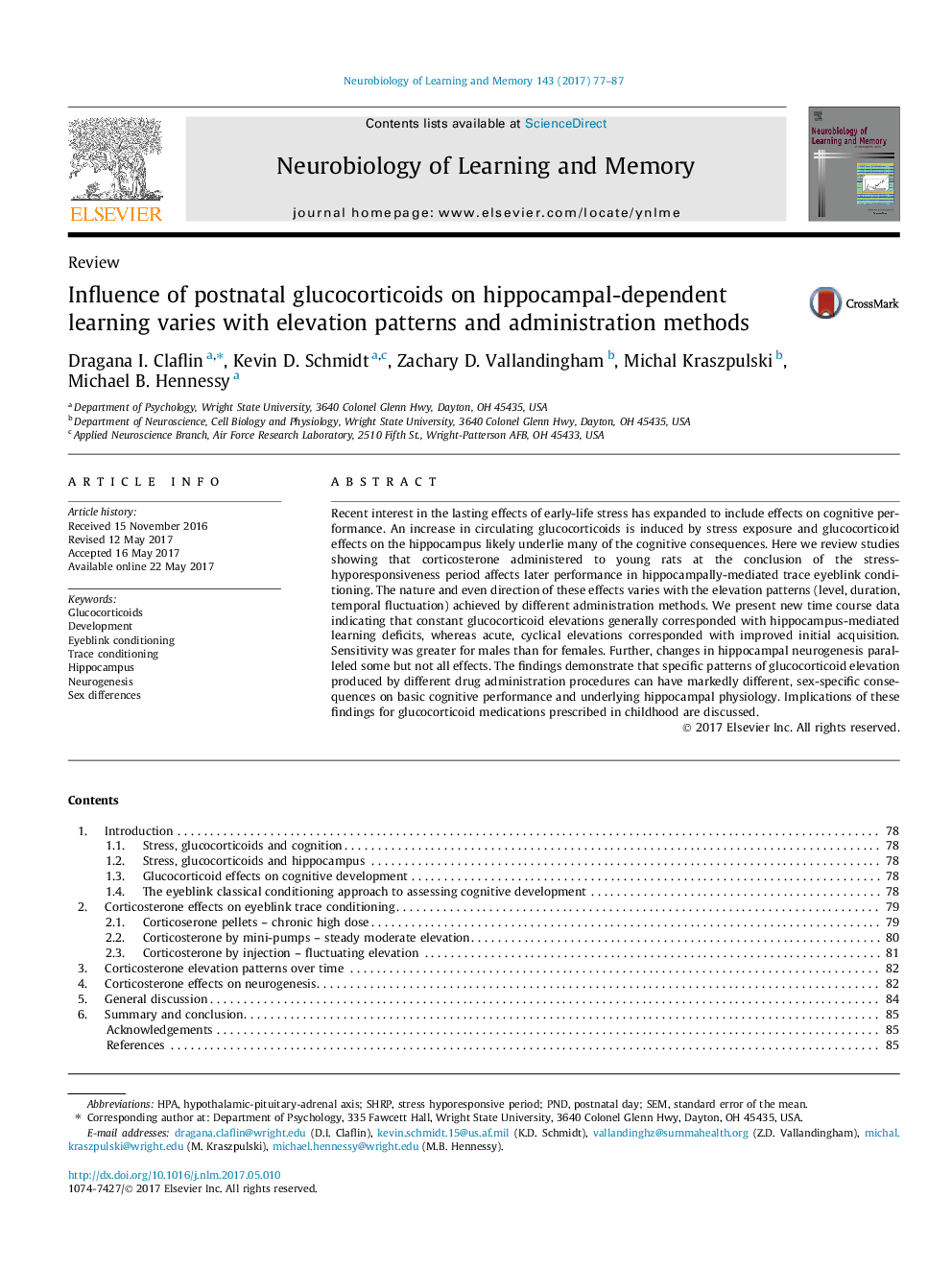| Article ID | Journal | Published Year | Pages | File Type |
|---|---|---|---|---|
| 5043157 | Neurobiology of Learning and Memory | 2017 | 11 Pages |
â¢Preweaning glucocorticoids affect later eyeblink trace conditioning.â¢Varying glucocorticoid elevation patterns differentially affect later cognition.â¢Greater sensitivity of males to glucocorticoid effects on hippocampal tasks.
Recent interest in the lasting effects of early-life stress has expanded to include effects on cognitive performance. An increase in circulating glucocorticoids is induced by stress exposure and glucocorticoid effects on the hippocampus likely underlie many of the cognitive consequences. Here we review studies showing that corticosterone administered to young rats at the conclusion of the stress-hyporesponsiveness period affects later performance in hippocampally-mediated trace eyeblink conditioning. The nature and even direction of these effects varies with the elevation patterns (level, duration, temporal fluctuation) achieved by different administration methods. We present new time course data indicating that constant glucocorticoid elevations generally corresponded with hippocampus-mediated learning deficits, whereas acute, cyclical elevations corresponded with improved initial acquisition. Sensitivity was greater for males than for females. Further, changes in hippocampal neurogenesis paralleled some but not all effects. The findings demonstrate that specific patterns of glucocorticoid elevation produced by different drug administration procedures can have markedly different, sex-specific consequences on basic cognitive performance and underlying hippocampal physiology. Implications of these findings for glucocorticoid medications prescribed in childhood are discussed.
